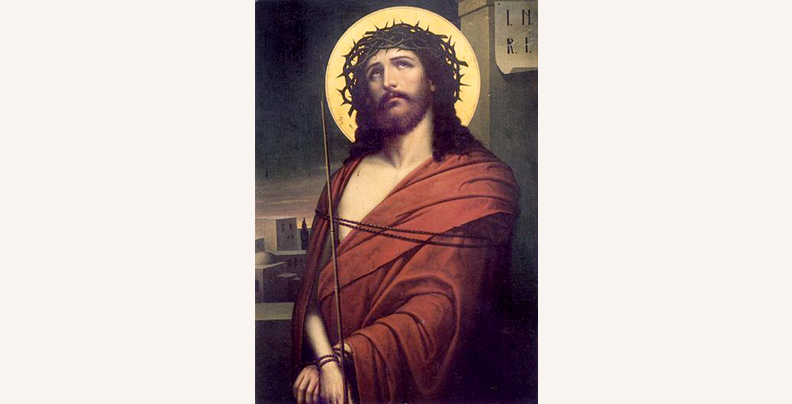
Independence Through Submission
“He humbled Himself,
becoming obedient to death,
even to death on a cross.”
– Philippians 2:8
Dear Friends of Carmel,
At no time more than this holy season of Lent do we recall the sublime and loving obedience of Our Savior. While Holy Church urges us to join for 40 days as one family of believers in this holy recollection, she links recollection to penance. And in both, we are called to imitate what we recall, and voluntarily, heartily, to take on suffering after the example of Jesus.
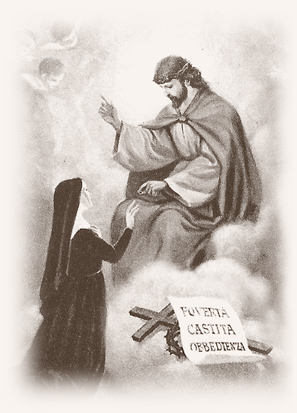
Most of you will remember that in recent newsletters over the past year, we have offered for your interest and devotion a discussion of the Vows of Religious Profession. We have spoken about Poverty and Chastity, both as virtue and vow; and we have tried to relate the important aspect of virtue to the Christian life of every one of us who belong to Christ – the vocation all Christians have to holiness, those who are not professed religious, as well as to Religious. The vows are often called the evangelical counsels. – simply what Our Lord taught by word and deed in the Gospel.
The Catholic Encyclopedia explains this clearly:
Christ in the Gospels laid down certain rules of life and conduct which must be practiced by every one of His followers as the necessary condition for attaining to everlasting life. These precepts of the Gospel practically consist of the Decalogue, or Ten Commandments, of the Old Law, interpreted in the sense of the New. Besides these precepts which must be observed by all under pain of eternal damnation, He also taught certain principles which He expressly stated were not to be considered as binding upon all, or as necessary conditions without which heaven could not be attained, but rather as counsels for those who desired to do more than the minimum and to aim at Christian perfection, so far as that can be obtained here upon earth.
So as we consider the remaining vow, that of Obedience (the one people find most difficult, nearly impossible), keep in mind that in truth, God invites each of His children to Christian perfection, each in one’s own way and life. For no true Christian wants only to “do the minimum.”
What is Obedience?
Perhaps you are intrigued with the title of this newsletter, Independence Through Submission. We hope so. Let the contrasting notion of the words sink in… … The rather beautiful phrase is borrowed from the title of a book each Sister reads during our novitiate years – and which we love to re-read as the years pass.
The book is an instruction to religious on the holy vows, replete with lessons about human nature and the overcoming of what is wicked in it and the striving to perfect what is good.
Obedience is “The moral virtue that inclines the will to comply with the will of another who has the authority to command and who commands rightly (according to God’s law). Material obedience is merely to carry out the physical action commanded; formal obedience is to perform an action precisely because it is commanded by a legitimate superior … As a virtue, obedience is pleasing to God because it means the sacrifice of one’s will out of love for God.” – (Catholic Dictionary, Hardon)
The vow of Obedience is “The voluntary binding of oneself under oath to obey superiors in a religious institute, or a confessor, or spiritual guide. By this means a person is more permanently and securely united with God’s saving will…” (Hardon)
The vows are (as previously discussed) the three-fold restoration of what was lost through the sin of Adam; three remedies for the three concupiscences. (Concupiscence, remember, means an inclination to evil, to sin.) Poverty, corrects the concupiscence of the flesh and detaches us from the goods of the earth. Chastity, corrects the concupiscence of the flesh and detaches us from people. And Obedience? Obedience strikes at the root of them all, the pride of life – it detaches us from ourselves. Pride is the inclination to put ourselves above others, to thrust forward our will upon others. And oh, how difficult it is for us to give up our own will! St. Francis de Sales famously remarked:
“Self-love only dies with our natural death: it has a thousand wiles whereby to keep a hold within the soul, and we cannot drive it forth. It is the first-born of the soul; it is upheld by a legion of auxiliaries – emotions, actions, passions; it is adroit, and knows how to employ subtleties. On the other hand, the love of God, which is the later born, has also its emotions, actions, inclinations, and passions. These two struggle within us, and their convulsive movements cause us infinite trouble….”
The trouble is that it is hard to renounce what we all cling to most closely, what practically makes up the core of our personality: the independent use of our liberty. But in this is the gift that loving obedience is. Yes, the whole perfection of spiritual life – and the whole of true freedom – consists in the renouncement of self-will, as St. Bonaventure tells us.
Imperfect Obedience
Many people, parents for example, mistake for obedience simple compliance with a command. As long as a child does what he is told, he is judged to be obedient. Well, maybe. Or it often happens that Catholics who follow all of the Ten Commandments and the laws of the Church perceive themselves to be “pretty good Catholics” – while all along, they have certain unspoken misgivings about those commandments and laws; they may inwardly resent that authority always being in the way of “doing my own thing.” This is not obedience, and it is certainly far from a loving child’s submission to God our Father.
No, exterior conformity, passive following along, or even grudging submission, are all a far cry from the loving and sublime virtue taught us by none other than Our Savior Himself: “My meat is to do the will of Him who sent me,” He said. Just think! He considered the very nourishment of His life to be obedience to His Father! And we and our half-hearted obedience, full of complaints and questioning? It seems we will all have to admit, if we honestly appraise ourselves and our motives, it is quite possible to do exactly what we are told and be inwardly quite disobedient, defiant, rebellious, and critical. Poor, frail, mistaken human nature…
Christian, Catholic obedience is something much higher, something more complete. It is not merely the compliance of external actions, but also the joyful and loving, complete submission of the will and judgment. Recall the remark above, that the virtue of obedience is pleasing to God because it means the sacrifice of one’s will out of love for God. And we are commanded by Jesus to love God with our whole heart, our whole mind and all our strength.
Obedience in Religious Life
Ever before us, when we enter Religious Life, is the example of Christ Jesus Himself. He is our love and our ideal, He, our goal. From Him do we learn the true spirit of consecration and obedience. We are constantly urged by the grace of our vocation to imitate Him:
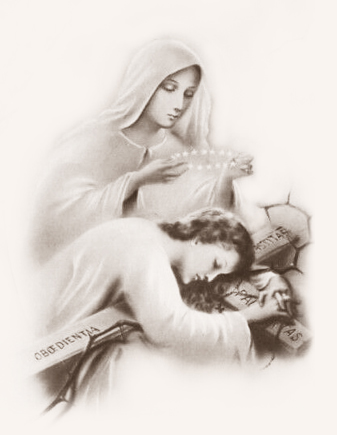
The secret of Christ’s total subjection to human authority lies in his consecration to the Father’s glory. It was the glory of the Father that Christ was always seeking. He never expected that this glory of the Father should coincide with His own satisfaction. The clear vision of the Savior carried His human will along with it in full submission and subjection…
It can be seen that no Religious should suffer from depriving herself of her right to be mistress of her own destiny in the taking of the vow of obedience. If she understands the meaning of her consecration she will realize that her destiny is catered for in the furthering of God’s glory, by allowing God to guide her life along the paths that He has chosen for her. In this she knows her true destiny lies. By her subjection she fulfills her supernatural destiny in a manner that fully satisfies the aspirations of a consecrated heart.
Independence Through Submission
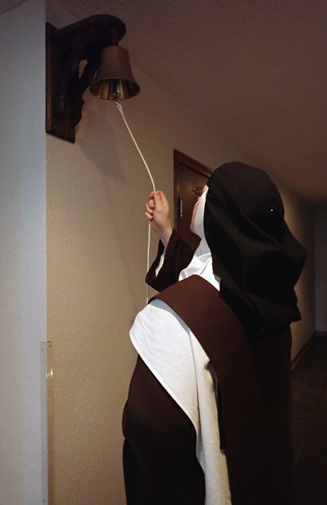
In Carmel, we can honestly say that the entirety of our existence is submitted to obedience. A bell is rung that calls us from duty to duty, tells us when to rise in the morning, when to pray, when to eat, when to retire at night. That bell is the voice of God. God also speaks to us through our Rule, which specifies all of these things, schedules our days, appoints what we wear, tells us that we must work – when and how much – and even how to conduct business matters. God speaks to us through our superiors, who determine our duties and have all of our time and talents at their disposal. And it will perhaps be no surprise to you that there is no “time off” or “vacation” from obedience!
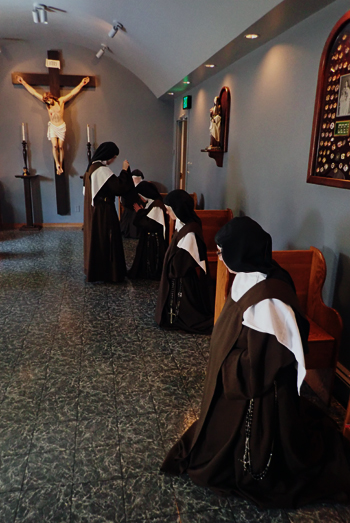
One of our Carmelite customs each Sunday is to kneel in the Choir after our morning Divine Office. The Prioress goes to each Sister and offers her scapular. Each one kisses the scapular and says, “Benedicite, Our Mother, for all my actions of this week.” It is a plea for the blessing of Her Reverence, as God’s representative, upon all we will do in the coming week. It is a reminder to each of us that nothing we do, should be outside the realm of obedience.
But this all stands to reason, since we are taught by Christ Our Lord and by the inspired Doctors and Fathers of the Church, as well as by our Carmelite Founders and all the Saints, that obedience is the only true self-gift – the key to Heaven, the way to perfect love: “Obedience,” says St. Thomas Aquinas, “unites us so closely to God that it in a way transforms us into Him, so that we have no other will but His. If obedience is lacking, even prayer cannot be pleasing to God.”
In his famed Letter on Obedience, St. Ignatius bequeathed to his sons, the members of the Society of Jesus, a quite comprehensive treatise on this virtue. He stressed that true obedience is an entire submission of one’s judgment, will and understanding:
But how perfect it is in itself and how acceptable to God can be seen from the value of this most noble offering which is made of the most worthy part of man; and because in this way the obedient man is made a living holocaust most acceptable to His Divine Majesty, keeping nothing whatever to himself; and also because of the difficulty overcome for love of Him in going against the natural inclination which all men have of following their own judgment.
The Redemptorist priest, Father Louis Colin, in his works on Religious Life echoes these teachings of the Saints:
After the Mass and martyrdom, no sacrifice can surpass or equal that of religious profession. Now, what is most sacrificial in a monastic life – and daily experience confirms the teaching of the Doctors – is neither poverty, nor chastity, but obedience. How great is the cost, amounting sometimes to heroism, of ceaselessly giving up one’s wishes, initiative, plans, and tastes, even one’s whims, in order humbly and silently to wear the yoke of the Rule and the orders of those who have authority.
Religious obedience is often given three features or qualities: prompt, persevering, blind. Of prompt obedience, St. Bernard says, “A Christian faithful to obedience, knows not delays, but prepares his ears for hearing, and his hands and his feet for labor.” And of untiring, persevering obedience, of course we ever have the example of Our Savior Himself, Who was “obedient unto death, even the death of the cross”. For most people, the third, blind obedience, is the huge problem. They simply cannot conceive of that degree of submission: “Really now, how in the world can anyone obey so utterly, so mindlessly as to be blind about it?” – as if to imply that kind of obedience is unhealthy and basically the result of a weak or even sick mind. Let a son of St. Ignatius explain, a commentary on the Letter on Obedience:

Obedience is called blind… when he who obeys does not examine, in the light of his own understanding, so as to judge whether the thing commanded is good or not, advantageous or not (if it is clearly not against the law of God), or whether the Superior is reasonable or not in commanding it; but with all simplicity, and blindly as it were, accepts the command, believing that it is just and good… Because, just as he who is corporally blind sees with the eyes of another and not his own and is guided by the hand of another and not by himself, so, speaking spiritually, he who does not rely on his own understanding, but on the understanding of the Superior, who does not obey by reason of what he sees and judges, but by what the Superior sees and judges and orders, is called and is, in a certain sense, blind… [and] does not make use of the vision and light of his own understanding, but of that which God has infused into his Superior, which is clearer, more certain and secure.
St. Francis de Sales, points out another frequent protest to blind obedience – and quite succinctly settles the matter:

Many have been greatly mistaken as to this condition of obedience, believing that it consisted in doing at random whatever should be commanded, even were it contrary to the Commandments of God and of holy Church. In this they have been greatly mistaken, imagining a folly to lurk in this quality of blindness which is not there at all. In all that relates to the Commandments of God, just as Superiors have no power whatever to give any contrary command, so in such case inferiors have no obligation to obey – indeed, if they did so they would sin… Loving obedience presupposes obedience to the Commandments of God…
The Saint raises the possibility of a person blindly obeying a sinful command without acknowledging it as such. But of course, if the requirements for obedience are missing (lawful authority, and lawful commands), it is the right and necessary thing to disobey in order to be obedient to the higher authority of God, from whom all authority comes, and to which authority itself is under obedience. And we are well-reminded in the Imitation of Christ, that “No man commands safely unless he has learned well how to obey.”
What Obedience Is Not
Blind obedience is not the only thing about which people have misconceptions. Other misunderstandings are the result of misjudging the character of those who enter the Religious Life. Some of the traits they assign are laziness, fearfulness, indecisiveness. But be it known to one and all: the very last person to have a true vocation to consecrated life is anyone who is incapable of making decisions; anyone looking for an easy, lazy way of existence, or a convenient, respectable way to avoid decisions and responsibility. No, an individual with a bland take on life, who doesn’t care much about anything, who drifts from one event or duty to the another, like a mindless wallflower, would never survive one week in Religious Life!
On the contrary, you will find many a choleric personality here in Carmel. Passionate about our beliefs, full of ideas, planning for the future and ready to shoulder its labors, come what may – these are the traits of those who give themselves to obedience in consecrated life. When one commits one’s life to Christ, it is the wholeperson, and any ideas, talents, or knowledge are all at the command and disposal of the Institute. A superior can draw upon the strengths of all for the benefit of all. Perhaps Our Mother will ask all of the artistic Sisters to come up with ideas for the next vestment, or the gardening Sister to come up with a plan for the shrubbery around the new building, or the Sisters with computer experience to plan the new website alongside those Sisters who run it day to day. We all contribute our best, if asked…and not at all, if not asked. And when the final decision is made, whether it was what we wanted or not, whether we agree with it or not – everyone drops her own opinions and goes forward, executing the decision as if it was her own, making it her own.
Some of the greatest Saints (St. Francis Xavier, St. Thomas Aquinas, our own Holy Mother St. Teresa come to mind), etc. were vibrant souls of action, full of wisdom and holiness, passion and strength of character, and a working knowledge of their apostolate. All the more admirable was their humble obedience, so willingly did they bend a knee to authority!
Obedience and Faith
But what is the motive of true obedience? How can anyone bend the knee or bow the head, unless there is something noble and reasonable that moves one to do this? You may recall again our earlier letters when we spoke of the Vows as being the perfect expression of the three theological virtues of Faith, Hope and Charity. We explained how holy Poverty expresses perfect hope in God, and Chastity, singular and perfect love of God. After reading all of the reflections above regarding blind obedience and submission of mind, will and judgment, it will come as no surprise that Obedience is for the soul the perfect expression of Faith. How else could anyone obey? Faith is the foundation, the essential condition of obeying. Without faith, why would anyone obey?
Divine faith – that virtue that is the ascent of the mind to all that God is and has revealed, because He has revealed it – moves a soul willingly to submit to Him and His every command or wish. Faith supports our obedience, but at the same time, obedience strengthens and enlivens our faith. For Faith, the virtue of Faith, is itself the supreme act of obedience.
This lofty, supernatural motive gives to every act of obedience its nobility in God’s sight. This it is that makes obedience wise, humble, generous, strong, far-seeing. Lifting up one’s soul to the mighty Lord of all and trusting in His provident love and goodness, any sincere soul may say, “Yes, Lord, Thy Will be done on earth, in me, as it is in Heaven!” And even if one does not understand a command – or agree with it – still, there is the Catholic spirit of faith (so very different from that of other religions) that seeks first to believe and follow that beloved Will. So that with St. Anselm, every soul may make this beautiful prayer to God: “Lord, I do not seek to understand so that I can believe, but I believe so that I may understand; what is more, I believe, that unless I do believe, I shall not understand.”

A final word about the virtue of faith may emphasize its importance in truly Christian obedience. Saint James reminds the readers of his epistle (2:19) that “The devils believe – and tremble.” The sin that merited their being cast into hell forever was not the sin of not believing; it was the sin of refusing to obey, of refusing to serve. Angels, created with supreme intellect, cannot plead ignorance, as man in his weakness can. But God in His love and compassion for man’s weakness gives divine faith (an infused virtue, as all the theological virtues are), and by it unites man to Himself. As Dom Paul De Latte wrote in a reflection on faith,

“My faith… establishes harmony between what I think and what God thinks; it is a participation in God’s own knowledge of Himself. My faith is not only a communion with truth; it is more – a communion with the intellect of God.”
And we may add further, necessarily a communion with the Will of God – moving us willingly, lovingly, to obey.
Pride, the Sin of Adam and the Soul Healed

We said above that obedience strikes at the worst and most troublesome of all the inclinations to sin: pride. Pride is the root, the origin of all sin. Satan’s sin was one of disobedience: “Non serviam!” The sin he deceived and tempted Eve into committing – and through her, Adam – was also one of disobedience, self-determination, rebellion against God, Who had bestowed all-abundant good upon them. God asked only one thing of them that would be the proof of their humble worship of Him, their Benefactor. But no. They would not. They would not obey. All to their own grief and ruin….and to ours.
Daily life for all of us is testimony enough to the sin we inherited from Adam and are born with. Even with holy Baptism, our nature is left weakened, as was Adam’s. From the thrust-forth from Eden to our own 2020 A. D., man has had to labor strenuously for the glorious eternity God planned for us. And pride is at the very bottom of that homeless wandering. As Adam ended up refusing to be told what to do – so not one of us likes to be told what to do, not even by God. We place immeasurable value upon our independence, upon our right to judge and decide, to formulate and hold opinions, based on the use of our intellect and reason. And when someone, especially someone above us, runs contrary to that, well!
We live in an especially rebellious era. Rebellion against authority is manifest, and indeed, all the rage! Perhaps in our day, more than ever before, we are plagued with the age-old sin of Adam, wishing to be like God, deciding for ourselves good and evil. So inviolable do we hold our opinions, so sacrosanct our right to think what we want, so strong our right of determination, that we have carried it to utterly ridiculous extremes – not stopping even at trying to determine who and what we are, what nature is, what creation is. And what has it all brought us to but misery, unhappiness and utter loss of peace?
Yet the designs of a loving Providence arranged the healing answer to all of this tangled web of self-determination and self-destruction. The perfect obedience of Christ and His Mother thoroughly unraveled that web. Through her “Fiat!” the Blessed Virgin Mary reversed Eve’s failure, bringing into the world Our Savior. And through the supreme work of obedience, Our Lord blotted out the sin of Adam and brought Redemption to the human race. Of course, it follows logically that it is through obedience that we undo the effects of original sin in our own souls.
Obedience as a Penance

Reversing the effects of sin is just what the Season of Lent is all about. A time of penance, prayer and conversion. For we are following Christ into the desert for forty days, there to wage battle against the enemy. Knowing that Our Lord is with us, we will not fear to face that enemy, nor to face the fact that we ourselves are in league with our enemy, through sin and vice, through faults and imperfections that we know displease God, through evil, selfish, unworthy inclinations and intentions. Re-living the mysteries of Redemption, contemplating the sufferings that have saved us, offering the sacrifice of fasting, almsgiving and prayer, we strive during Lent to overcome all that holds us back from our main purpose in this life – union with God.
By observing these traditional ways of doing penance, we are being obedient to Our Lord, who recommended them in His Sermon on the Mount, as well as to Holy Church, who enjoins these practices upon us by the very observance of Lent. In past Lenten newsletters, we have spoken particularly about some of the these, such as fasting, and praying the Stations of the Cross. But in our observance, we must be cautious that we are not guilty of what God spoke through His prophet, Isaias: “Behold, in the day of your fast your own will is found.” That is why humility must be attached to all our penances and sacrifices – not always an easy accomplishment!
Let the Saints speak of “penitential” obedience and of how powerful it is against our enemy:

“Obedience is a penance of reason, and, on that account, a sacrifice more acceptable than all corporal penances and mortifications.” – St. John of the Cross
“Without a doubt, obedience is more meritorious than any other penance. And what greater penance can there be than keeping one’s will continually submissive and obedient? – St. Catherine of Bologna
“The Devil doesn’t fear austerity but holy obedience.” – St. Francis de Sales

“Obedience, is rightly placed before all other sacrifices, for in offering a victim as sacrifice, one offers a life that is not one’s own; but when one obeys one is immolating one’s own will. They who obey are conquerors, because by submitting themselves to obedience they triumph over the Angels, who fell through disobedience.” – St. Gregory the Great
Clearly, nothing so works at overcoming self and “all that holds us back” as sacrificing our own will. Here are some excellent ways to do this very thing during Lent – making a lasting habit of it for the future:
- Fidelity (obedience) to daily duty. (How many times have we mentioned this in past newsletters, especially those about Our Lady of Fatima and of the Shortness of Time and the Length of Eternity?)
- Charitably helping, sharing and shouldering the work of others, to the degree that we are able.
- Attention to the small details of our works – ever a tedious task, but so very necessary to please Our Lord, make reparation for our past sins and faults, win graces for our loved ones and for the whole world.
- Humbly renouncing one’s own plans for penance, if health constraints or other issues/events clearly make it evident that that particular penance is impossible for you. “Obedience is better than sacrifices.” (1 Kings 15:22)
- Relinquishing our opinion about small, unimportant matters to that of our neighbor – the particular way to wash a dish, the color of the new blinds, what we are going to make for dinner today.
- Enduring the inevitable irritations of daily life, the little ones, as well as the big ones, and patiently bearing with the faults of our neighbor.
- Admitting and accepting with peace and humble honesty our own faults and frailties, which are often much greater than our neighbor’s.
- Other ways of giving up self-will – ways that will be inspired by the Holy Spirit through your Lenten prayers and good works.
Website News
Since this is already such a lengthy newsletter (we hope not too tediously long!), we will not be featuring a special sacramental, as is our custom. Lent, its prayers and observances are quite sacramentals enough for all of us to employ during these Holy Forty Days!
Vexilla Regis
Everyone will be more than pleased to know of further progress from our friend, Scott Bingham, and Vexilla Regis. The first wonderful news is that he and his lovely wife are the proud parents of a new baby boy, born just last week! Obviously, Scott’s primary responsibilities are with his family, but he continues, step by step, to build up his forge and add to his selection of wood inlaid crucifixes, particularly the St. Benedict crucifix. We are happy now to be offering this stunning and devotional crucifix in nickel silver, as well as the brass. He hopes next to work with rosewood in addition to the current ebony crucifixes. Please keep Scott and his family in your prayers!
First Holy Communion Gifts
Several beautiful rosary boxes are new to our website. Two of the designs have First Communion themes and are artistically crafted in wood and sterling silver. The third is a lovely porcelain-like box with a Marian theme. These, as well as a number of new styles of rosary pouches, make ideal gifts to accompany our handmade rosaries.
Spiritual Reading for Lent
In addition to the books offered in our Lenten book selection, so many other books may be of benefit to your souls. We encourage you to take time to peruse the titles – and if you have questions about any of the books, please feel free to ask.
We take special pleasure in offering an old book, beautifully re-published – a book for children. Manners in God’s House – First Prayers and First Missal for Little Catholics: A First Book for Little Catholics. It is actually three separate books bound as one. If you can believe it, a few of us here (in our 50s and 60s!) remember these dear books when we were small children ourselves. They were favorites – and we never forgot the lessons learned, just from the charming illustrations. We also added some new children’s Missals and catechisms to our selection.
Another title new for us is a small book by the great apostle of devotion to the Sacred Heart, Father Mateo, the Holy Sacrifice of the Mass. Who would not be eager to know this holy priest’s reflections about the Mass? And the last of new titles to our site is a book by Father Lovasik, always a trusted author and spiritual guide. The Hidden Power of Kindness is sure to be good Lenten reading for all, for the greatest Lenten penances can be just to practice those most challenging virtues of charity, patience and kindness.
We were able to locate a few more copies of our Rare and Out-of-Print titles, including a few Cross and Crown books. No “new” titles this time, but we look forward to continuing, in our small way, to put these rare books in your hands to enrich your spiritual life. One available still in some quantity is The Names of Christ. The book is arranged as spiritual conversations between men of God – sharing wisdom from prayer and study, seeking further heights of wisdom. Holy doctrine of all variety is woven within the conversations, as these lovers of Christ speak of the titles given Him in Scripture and tradition: Shepherd, Face of God, Lamb, etc. Wonderful reading for Lent to increase your time spent in the company of Our Lord and increase your knowledge and love of Him.
One last title we earnestly recommend is The Art of Loving God (Simple Virtues for the Christian Life). In this and others of this series of selections from the conferences of St. Francis de Sales, Sophia Institute Press has done a wonderful service to souls. These conferences were given to the first Visitation nuns. Truly, they were priceless in their value to St. Jane Frances and the other early Visitandines. Happily, all religious and lay people can now benefit from the careful notes taken by these holy nuns. These conferences are welcome reading for us in Carmel – always something from them to enlighten, encourage and send us on our way with a lighter, wiser heart! Perfect reading for Lent (as well as germane to our newsletter theme), as you may gather from just a few of the chapter titles: Embrace God’s will with equanimity, Obey those placed in authority over you, Be patient as you seek perfection, Accept reproofs without bitterness, Love God simply…
Community News
After all the events of last year, our community news must seem rather uneventful. But we have been enjoying the peace, quiet, and regular routine, putting aside all large and life altering projects for the time being… well, for the most part!
We have been putting our new sewing room to the test. On one side of the half wall the embroidery department is hard at work designing and getting all of the pieces ready for a new vestment – in honor of the Holy Family. The details are a secret for now, but we can say there is a lot of gold, and a lot of red, in all sorts of shades and types.



On the other side of the wall the room is bustling with yard upon yard of brown wool and humming sewing machines. Some mornings there are seven or eight Sisters working there, and the room is now large enough to hold them all! As we mentioned in our last newsletter, we decided to take on the long overdue project of making new habits for most of the Sisters – some of them were over ten years old! And when you wear the same clothes every day, they get a significant amount of wear. We have been patching up patches, mending worn hems and darning holes closed “on the go,” so it is high time for new ones! All of the tables, machines, and pins (you can never have enough pins) have been in constant use…
Joyfully, we are also making “first time” habits for our Postulant, whose Investiture ceremony is coming up soon. It will be a happy occasion for the whole Community and all of our “extended family”, which, we know, includes you! Please remember our new little Sister in your good prayers.

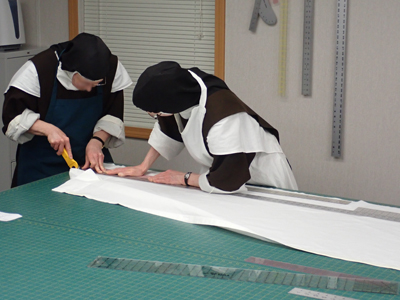
A beautiful topic for a future newsletter might be the symbolism and meaning of the holy habit we wear – the meaning of each part of it. The relevant piece that symbolizes obedience is the leather cincture – a simple, but long, leather belt: it fits around the waist, but the length of the piece that loops through the buckle reaches down the right side to just 8” above the floor. And if you are picturing in your mind, “a rein,” you are not wrong! The cincture symbolizes not only purity of life, but also our life under holy obedience – the will to be led, trained, guided, commanded. In the Clothing ceremony, Sister hears the priest say these words from St. John’s gospel (21:18): “When you were younger, you girded yourself and walked where you would; but when you are older, another will gird you. In the name of the Father, and of the Son and of the Holy Ghost. Amen.” The cincture reminds us not only of Our Lord’s admonition to Peter, but since we are special daughters of Our Lady, also of her words recorded in Holy Scripture. They bear eloquent testimony to obedience: “Behold the handmaid of the Lord; let it be done unto me according to thy word,” and “Do whatever He tells you.”


February here in Colorado has been a snowy, cold one! With the new building, the amount of walk needed to be shoveled and the importance of shoveling it has increased dramatically. But we enjoy the exercise!

A new Sister, as you may know, is given a new name at her Clothing Ceremony. This is another symbol of leaving behind her former life and starting a new one. The Community chooses the name, and in the months leading up to the Clothing, a fair amount of teasing ensues: “Pray hard, Sister, for a good name!” Warnings of some crazy name or other are proposed, and we call this friendly teasing “the postulant penance,” which is always accepted with a great deal of laughter and good humor. Some of the “name threats” have been quite memorable! Sister St. Bede of the Rosary (to one of our rosary making Sisters) or Sister Calamitatis of the Mea Culpa (to our accident-prone postulant). It is around this time of year that the story of Joseph the Patriarch is read in the Divine Office, and one of our favorite names to tease this particular Sister with has been the name that was given to him by the Egyptians – Sister Zaphenath Paneah (no title needed; it is a mouthful as it is)!
But in the end, with no little inspiration of grace, a beautiful name will be taken on, which she hears the priest proclaim on her Clothing Day: “From this day forth, in Religion, you will be known as…” Yes, it is a thrilling moment to hand over to the merciful God even one’s name from birth. The noble thought is, “Today, Lord, I embark on a voyage that makes me quite another person – the person YOU will make of me, the soul You have created me to be…”
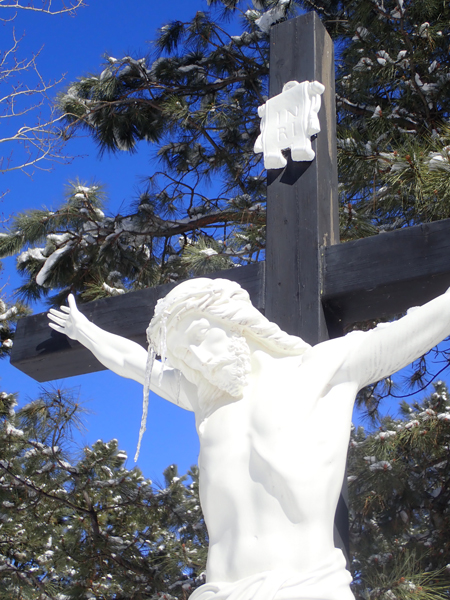
We’ve had little trouble keeping abreast of world news, especially the mysterious virus infecting so many. Emails from friends who in their travels have become infected, as well as from other friends overseas, who tell us of cancelled travel and events, shortages in grocery stores, etc. And even as we were preparing this letter, one dear friend wrote of the death of his father from the sickness – please pray for him! Always remembering that sicknesses of this kind are often a punishment for sin, in past ages, the faithful of Holy Church, under the leadership of popes and bishops, would pray most especially the Litany of the Saints in procession. This and other litanies may assist you in your prayers for this distress that has befallen our world. Our prayers are with all the suffering!
Let us all embrace the unique crosses and sufferings Our Lord may send during this time of Lent. Will His loving Providence allow some great loss, or add some great burden? Will He take from us some support that is our mainstay? Will death enter our family or community circle? All of these would have the power to crush our very soul, so difficult, would they be to bear. In moments such as these, our will, our whole being, may recoil and be tempted to rebel against what is obviously God’s decision. But Our Lord sees, and He understands. He took such anguish of soul to Himself in the garden of Gethsemane, when the cry was wrung from His very depths… “Father, if it is possible, let this chalice pass away from me.” Through this anguish, through this suffering, He gave us the strength and example we need to unite our own soul to the completion of His earnest prayer, “Yet not as I will, but as Thou willest!” As we go about our Lenten work of restoring our souls to God, let these words often be on our lips, in trials, sufferings and crosses, both great and small: “Thy will be done.”
In closing, we assure you of our prayers, as always. May Our Lord make this a holy and fruitful Lent for all His Church!
Your Carmelite Sisters
I will lift up my hands to Thy commandments
and I will meditate on They laws…
Much peace have they who love Thy law, O Lord!
(from Psalm 118)
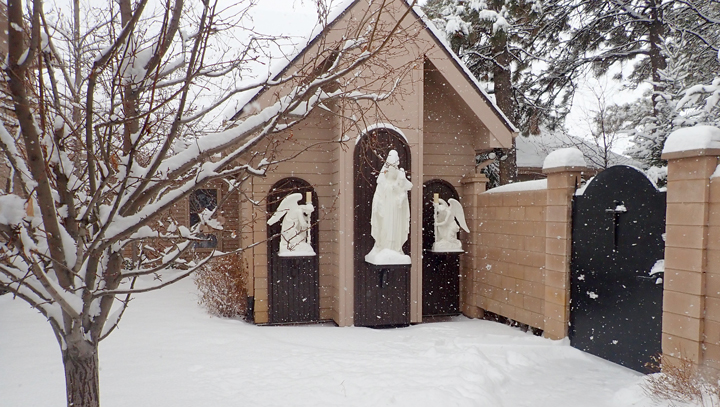

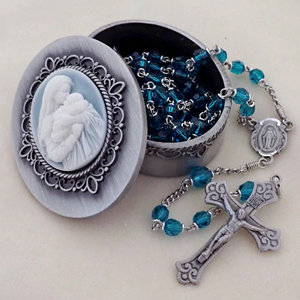




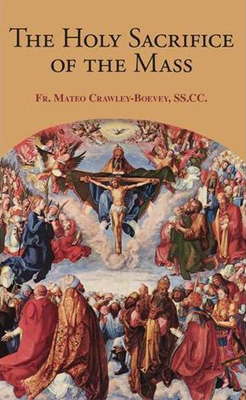



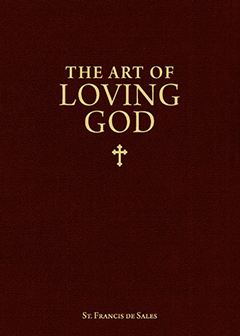
One thought on “Independence Through Submission”
Comments are closed.